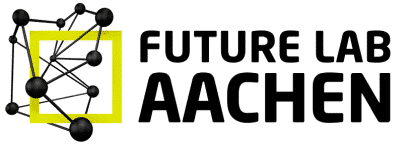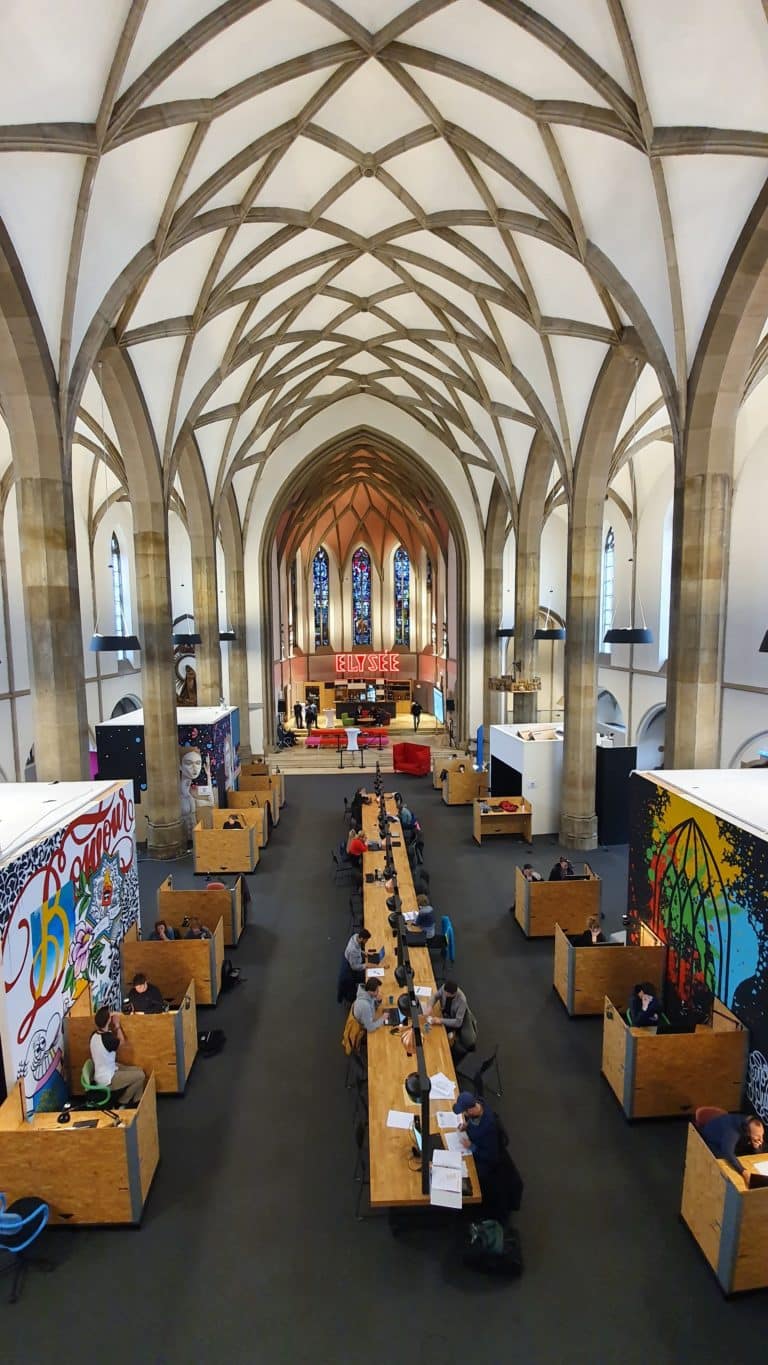Successfully active for 30 months now – the digitalHUB aims to digitize the Aachen region’s economy and, to this end, has been purposefully bringing specific SMEs together with specific startups.
Finding a parking space, as we all know, is a minor task that can quickly become annoying – in Aachen and elsewhere. To change this, the city of Aachen, the city’s energy service provider STAWAG and the startup S O NAH joined forces a few months ago. And how are they going about it? In Friedrichstraße, they are equipping street lamps with sensors that detect whether a parking space is free or occupied. In the future, drivers will be able to call up this information in real time via a website, enabling them to head for free spaces in a purposeful and time-saving manner. S O NAH has developed the sensors, while STAWAG is managing the street lamps. The two parties found each other through the digitalHUB, which has been operating in the former Elisabeth Church on Jülicher Straße since summer 2017.
The region is on board
“This project, and many others like it, exemplifies our approach,” says Iris Wilhelmi, Managing Director of digitalHUB. “As a digitization center for Aachen, our goal is to support SMEs on the inevitable path towards digitized operations. We bring them together in a purposeful way with startups and established regional companies that offer digital innovations, solutions and services – a model that has proven very attractive and successful during its first 30 months.”
From the very start of the digitalHUB, it was clear that the region would be on board in all sectors of business, science and politics. When, in 2015, funding from the NRW state government had to be co-financed, companies came up with 1.5 million euros for three years within just 40 days via crowdfunding. Key players such as the Chamber of Industry and Commerce, the Chamber of Crafts, Aachen’s universities, the City of Aachen and the City Region were also involved from the very beginning. “Our sponsoring association was founded in summer 2016 with 120 member companies, 20 of them startups,” Iris Wilhelmi recalls. “Now, at the beginning of 2020, we have 315 members, and 170 of them are startups.”
Creative community
The digitalHUB is attractive because it does a lot for its members. The “digitalCHURCH” is centrally located, and offers not only a stimulating atmosphere, but also a comprehensive infrastructure with workspaces, 80 flex desks, eight meeting rooms and conference facilities. Numerous startups are based here and they form a creative community. “SMEs also have flex desks here and are regularly present,” says Iris Wilhelmi. “Proximity promotes innovation. Demand is huge, so we are currently in the process of renting additional space and rooms in the immediate vicinity of the church.”
The SMEs and the startups are systematically brought together by a matching service: “Our core business,” as Iris Wilhelmi puts it. The digitalHUB consultants check what the SMEs need and what the startups can offer in this regard. Numerous events, some of them industry-specific, bring the players together. The formats range from matching platforms to pitch stages to speed dating. The Hub team has organized over 100 such events in 2019 alone. In addition, there are special consultation and training sessions for the startups covering law, tax issues, marketing, patents and many other topics. One popular format is Finance Day, where experts provide information on all aspects of financing and explain, for example, how to raise venture capital and funding.
Perspectives beyond borders
The digitalHUB is planning additional projects for the near future. For the RWTH’s Excellence Start-up Center, which is being built on the Melaten campus, it will act as an urban outpost, providing support for the digital founders. And then Iris Wilhelmi wants to expand euregional cooperation. Close contacts with Hasselt and Heerlen already exist. “Because the RWTH has such a good reputation, the Belgians and Dutch are interested in our digital tech startups. We’re also keen to take advantage of the benefits that come from being in such close proximity to our European neighbours.”
08.01.2020



